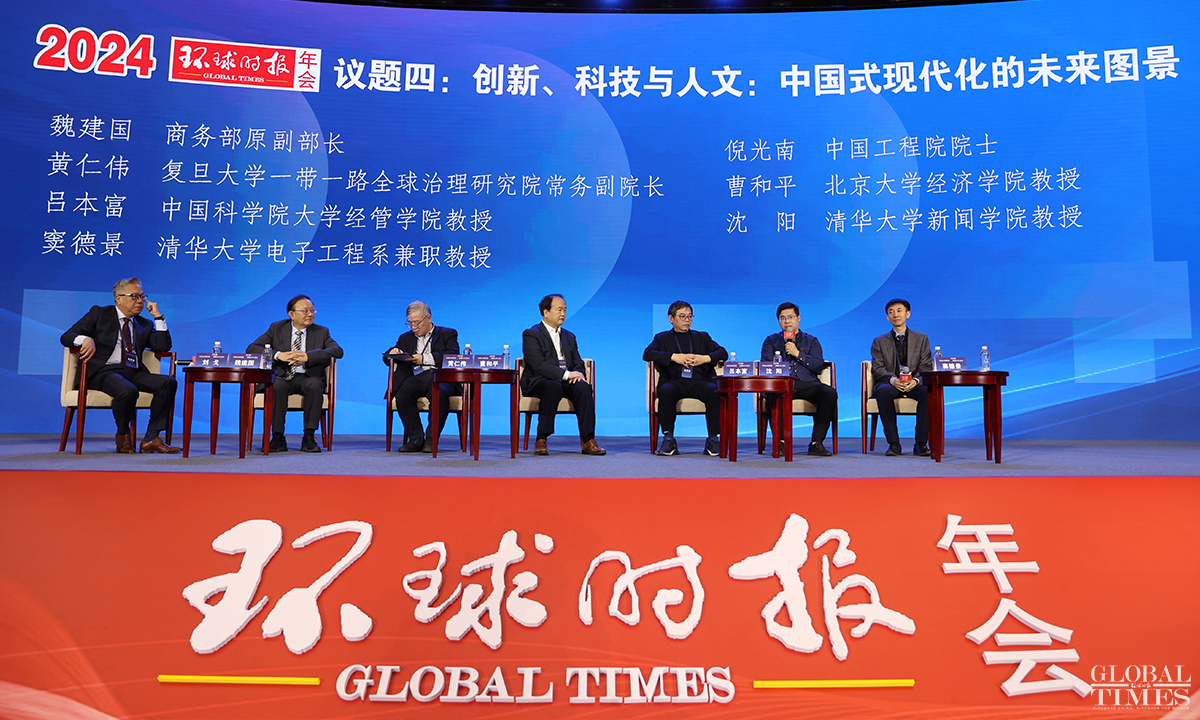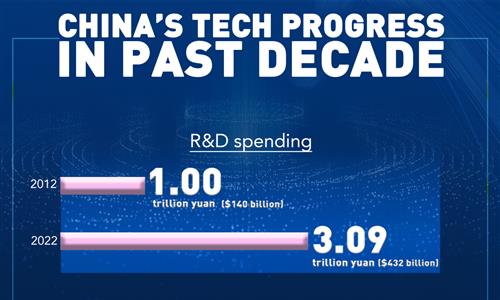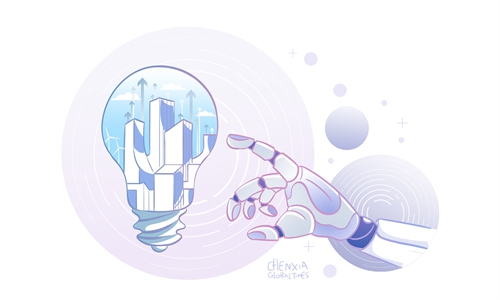China has broken the US blockade in certain technological areas: experts at GT annual conference

The 2024 Global Times Annual Conference is held on December 23, 2023 in Beijing. Photo: Cui Meng/GT
The US overrates the impact of its strategy of "small yard, high fence" in the field of science and technology, supposing that it can block China. But in reality, China has broken the US blockade in certain technological areas, and has achieved breakthroughs, Huang Renwei, Executive Vice Dean of the Fudan Institute of Belt and Road and Global Governance, said on Saturday at the 2024 Global Times Annual Conference.
Huang also warned that the technology war between China and the US remains fierce , as the US wants to prevent China from becoming the next global tech hub and is absolutely intransigent in this area. The US is committed to a complete "decoupling" in the technology sector.
"We can realistically say that this tech blockade fight will last for at least another decade. It will be at least ten years before China can completely break the US blockade," Huang said.
But Huang noted that China has broken the US blockade in certain technological areas, and has achieved breakthroughs.
Huawei's new smartphones reportedly featuring advanced chip processing technology, which was completely unexpected by the US, showcased that the US' plan to muscle China out of the high-end chip technology has failed, Huang said.
Huang also noted that the US' "small year, high fence" strategy will eventually result in the loss of at least the markets of China and most other developing countries. Huang divides the world market into three categories: developed markets, Chinese markets and other developing markets.
"I don't believe that China and the US have to fight a tough battle in the field of science and technology in the future," Wei Jianguo, former Chinese vice minister of commerce and executive deputy director of the China Center for International Economic Exchanges, said on Saturday when addressing the 2024 Global Times Annual Conference.
Wei said that China's scientific and technological innovations are inclusive, which means that China learns from the whole world, and "we also welcome people from other countries to come to develop in China to form scientific and technological innovation for mankind and the world."
Wei believed that at present, China's science and technology has entered a very critical stage of development. In general, the global technology center shifted every 100 years, from the earliest in the UK to the later in European continent and then to the US. So where is the next tech hub? Many people think it will be in China.
Wei used "sprint" to describe China's sci-tech development stage. "Now many countries and regions, including the US, India and Europe are looking at us, and we are already in a leading position in many technological fields, such as the digital economy."
China has two great advantages in scientific and technological innovation: the first is talent, and the second is the market. In the future, the world's science and technology center will shift (away from the US), and China is "catching up."
China now ranks the in the world in the number of scientific papers published each year. Whether China can put all its existing scientific papers into practice and to the market, the key lies in financial innovation, which can be seen through the success the US has enjoyed in technology, Wei said.
Huang echoed Wei by saying that China needs innovation in its financial system to fuel the development of science and technology.



